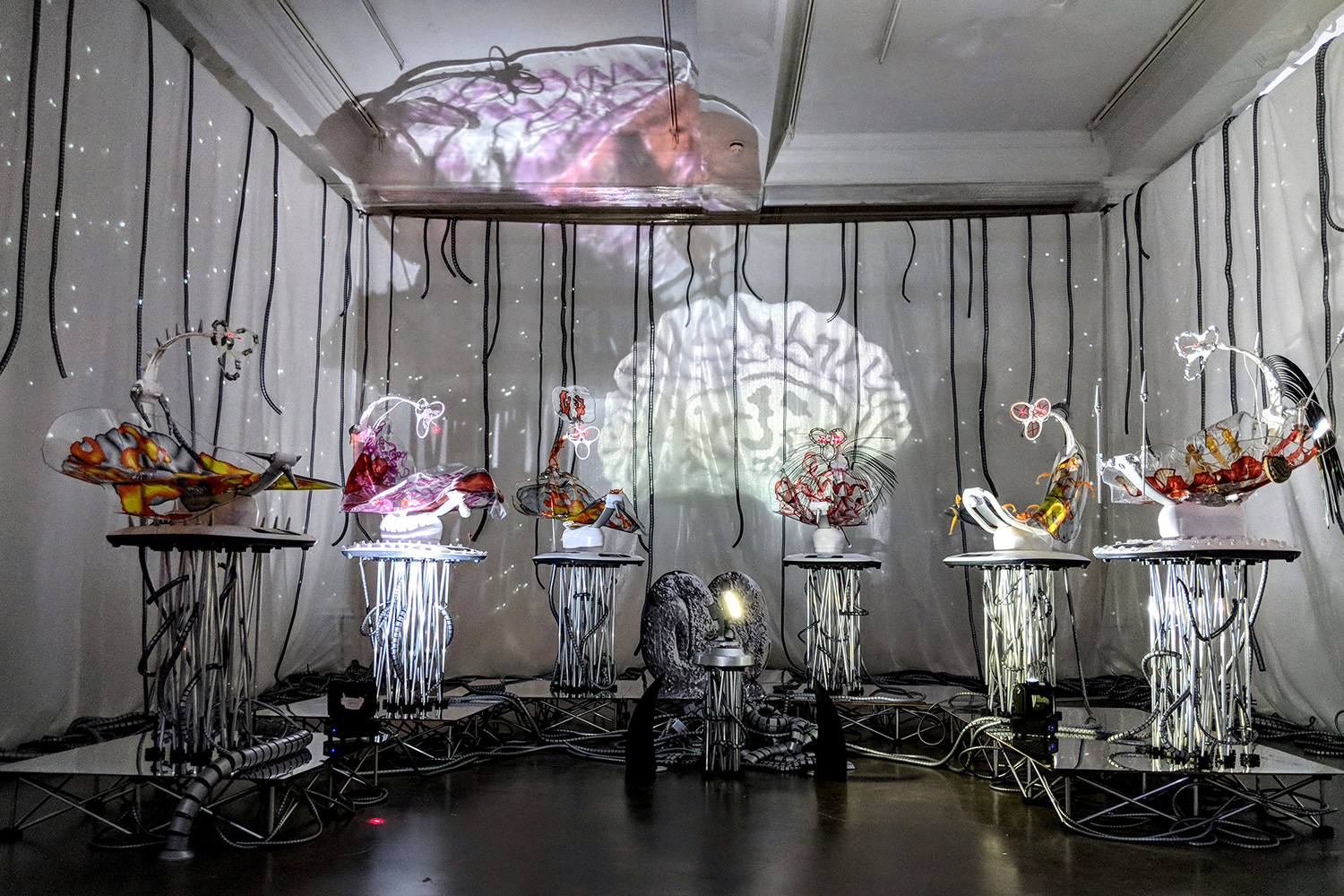The Spirit of Utopia exhibition offers audiences a hybrid space between an agora, a scientific laboratory and curiosity rooms. The idea of utopia that is negotiated through the exhibition spaces aims to be a critical and speculative tool, responding to current socio-economic conditions. Jointly developed by designers, cultural practitioners, architects, artists and the curatorial team, the resulting exhibition engages with diverse communities, highlights participatory and collaborative processes and is performative in nature. The participants, working across disciplines and drawing on urbanism and urban life invite spectators to consider future possibilities or alternative models for ecological, economic and socio-political existence.
In the first room, this crossbreed manifests in a juxtaposition of three works: Theaster Gates’ Soul Manufacturing Corporation (2011- on-going), a performative work intersecting craft labour, pedagogy and poetry in an operational pottery studio; Pedro Reyes’ Sanatorium (2013) employs psychological theory and analysis and the idea of widening public accessibility to therapy by constructing mock “clinics” and therapy sessions and Wayward Plants’ Improbable Botany (2013), a community-based project offering alternative solutions for food growth and consumption articulated as futuristic greenhouses.
This spatial hybridity is less evident in later gallery rooms. They follow a classic exhibition format of artist-dedicated spaces focusing on the relationships between archive and performativity, documentary methods and classification. Peter Liversidge’s Proposals for the Whitechapel Gallery (2012) comprises his realised and unrealised proposals for The Spirit of Utopia. This is a self-reflection on curatorial and artistic processes and the documentation integral to both the artist and the Gallery. A proposal, realised in this exhibition, was to distribute a free poster reproducing the inside cover of the Whitechapel’s first exhibition catalogue asking visitors to contribute financially to the exhibition. Claire Pentecost’s Old Friend and Unloved Others (2013) questions the neutrality and validity of scientific knowledge through microbiological research and fieldwork (collecting soil and compost samples from farms in and around London), examining the links between healthy soil and healthy humans. Pentecost’s kitchen-laboratory makes reference to traditional scientific methods (including classification and display) and to the kitchen as an experimental workspace where ideas and knowledge are developed.
The Gallery represents a metaphorical vanishing point for conversational, performative and participatory works about ideal worlds. While not offering a clear path to utopia, the exhibition is certainly a catalyst for critical reflection on contemporary global concerns.


